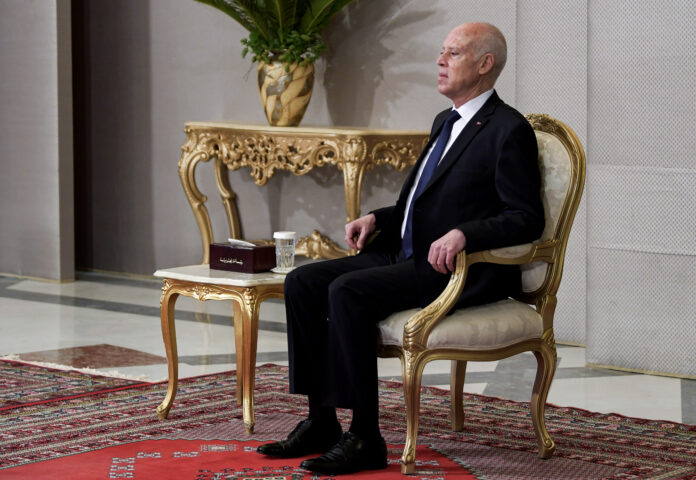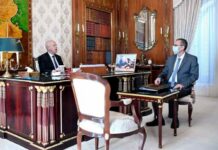By Mongi Khadraoui
Is Tunisia heading towards dictatorship? It is a question that many ask. The justifications for this question came after the exceptional measures announced by President Kais Saied on the evening of July 25, 2021, through the activation of Article 80 of the Tunisian Constitution.
Opponents of Kais Saied preemptively put forward the hypothesis that Tunisia will slide toward dictatorship.
How consistent is this hypothesis with reality and where is Tunisia heading?
There are a number of political criteria and conditions that constitute the concept of dictatorship, mainly: the absence of freedoms, the control of the holder of power over all aspects of life, the liquidation of opponents, and considering those who were not with the regime enemies.
Types of Dictatorship
Dictatorship is of two types: totalitarian dictatorship and authoritarian dictatorship.
In the field of political philosophy, Hannah Arendt (1906-1975) is considered the first to conceptually establish the term dictatorship, especially in the part relating to the origins of totalitarianism.
The totalitarian dictatorship is built on two foundations, the ideological foundation and the basis of terror and intimidation: whoever is not within the ideological system and the closed ideological context of the system is an enemy that must be confronted.
The confrontation takes place with physical liquidation, prisons and exile, and the secret police forces watch over operations of liquidation and intimidation, thus creating an atmosphere of terror in which everyone is afraid of everyone and society is the enemy of society itself. According to Arendt, dictatorial regimes can be found in the regime set up by Adolf Hitler in Germany, the regime of Joseph Stalin in the Soviet Union, or the regime of Benito Mussolini in Fascist Italy.
In the totalitarian regime, all forms of freedom are absent, while terror is present, the ruler is unique in every detail and circulates a climate of fear and intimidation in the hearts of people, so that the individual becomes afraid to speak in front of his family members.
Therefore, in the absence of any of these elements, we cannot characterize any regime as dictatorial.
Do these conditions apply to Tunisia in the time of Kais Saied?
Definitely not. Opponents are demonstrating against President Kais Saied and describe him as a coup person. The manifestations of freedom are still evident in the political and daily practice of the people, in addition to the fact that Kais Saied lacks the ideological aspect that makes him set a closed system that the secret police are working to implement his principles with terror. Tunisia has a civil society with strong components and capable of facing any slippage, such as the Tunisian General Labor Union and lawyers…
Are we about an authoritarian regime?
As for the authoritarian system, it is less severe than the totalitarian system, as it does not require an element of ideology, in addition to that it does not oppose freedoms in theory and at the level of discourses, but it suppresses them on the level of practice, making of its opponents an enemy, though it allows some margins of expression, even if it is illusory.
In both cases, the dictatorial regime monopolizes the three powers and does not distinguish between them and uses them to further impose its control and power.
Is the Tunisian regime under Kais Saied like this?
Referring to the conditions of the authoritarian system, and what is meant by the system here in its political connotations is le rgime and not the system in the sense of le système.
So if we do not find these conditions available either at the theoretical level or at the level of practice, what is the nature of the political system in Tunisia?
The Nature of the Political System
We will not present a constitutional or economic statistical reading, but rather we try to understand the characteristics of this system. Politically, it is not a dictatorial regime, but is based on an exceptional situation in order to combine in its hands at least the legislative and executive powers.
It is not a democratic system because the entire Tunisian experience is in the process of taking shape and is in the process of transition from an authoritarian regime to a possible and supposed democratic regime.
What the political system in Tunisia lacked before July 25, 2021 is decision-making: who decides? So, as it was necessary in the absence of someone who takes the decision, and in light of what he saw as a condition with which the activation of Chapter 80 of the Constitution is correct, for him to assume the authority to take the decision.
The state needs someone to rule and decide, and the state does not stand waiting in the face of indifference. The moment announced by Kais Saied can be described as the “Schmittien” moment, in reference to the German thinker and philosopher Carl Schmitt (1888-1985), who believes that the ruler must rule and impose his rule. .
It cannot be said, based on all the political and intellectual references, that Tunisia is living in a dictatorial regime.
Translated by Bechir Moussa











